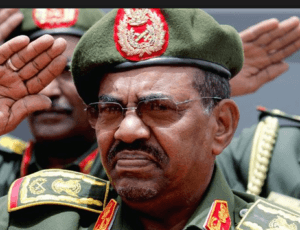ICC still wants Sudan’s al-Bashir

The International Criminal Court in The Hague still has its sights focused on Omar al-Bashir, ousted President of Sudan, to answer to charges of genocide, crimes against humanity, and war crimes allegedly committed in Darfur.
The conflict in the western Sudanese region has resulted in the deaths of over 300,000 people and the displacement of several million others.
At the height of recent protests across Sudan to get rid of Mr al-Bashir, a spokesman for the ICC told the GNA that “The ICC does not comment on political issues.
“As for the arrest warrants issued by the ICC Pre-Trial Chamber against him, they remain valid.”
Mr al-Bashir was removed from power on April 11.
On May 6, five judges sitting in the ICC’s Appeals Chamber unanimously upheld a Pre-Trial Chamber ruling that the Jordanian government was obliged to arrest Mr al-Bashir when he was attending an Arab League summit in Amman in March 2017.
The judges said there was no immunity for Heads of State before an international criminal court under international law.
They added that no traditional principle of head-of-state immunity – which protects leaders on foreign soil from arrest – existed that was necessary to be waived.
Reacting to the judgment, Elise Keppler, Associate Director of the International Justice Programme at Human Rights Watch in New York, said: “In a major ruling, the ICC found that heads of state properly sought on charges by the court are not immune from arrest.
“The decision helps to assure that victims of mass atrocities have access to justice, even when the highest-level officials are implicated in the crimes.
“Whether president or prisoner in Sudan, al-Bashir remains a fugitive from the ICC on charges of the gravest crimes committed in Darfur.
“Al-Bashir should be surrendered to the ICC to face the charges against him,” she added.
Sudan is not a member of the ICC, but in 2005 the UN Security Council referred the Darfur situation to the ICC.
The ICC prosecutor opened an investigation, and arrest warrants were issued in 2009 and 2010 against Mr al-Bashir.
While he was in Amman, the Jordanian government argued that it was not obligated to arrest Mr al-Bashir, given his status as a Head of State of a non-ICC member.
Although the Appeals Chamber found that Jordan did not meet its international obligations to arrest the then President al-Bashir, it reversed the decision of the Pre-Trial Chamber to refer the matter of Jordan’s non-compliance to the Assembly of States Parties and the Security Council.
The Jordanian government had appealed against the referral in March 2018.
It was the first time that a State Party to the Rome Statute had appealed against a decision of a Pre-Trial Chamber concerning the indictment of Mr al-Bashir.
The Appeals Chamber ruled that the referral was based on an incorrect conclusion that Jordan did not consult the court before Mr al-Bashir’s attendance at the Arab League summit.
The ICC had previously found that ICC members, including South Africa, Chad, Uganda, Malawi, and Djibouti, breached their obligations as ICC members by failing to arrest Mr al-Bashir when he visited these countries.
The decision of the Appeals Chamber was also welcomed by the Southern Africa Litigation Centre in Johannesburg, saying it was “crucial in the fight against impunity for international crimes”.
The SALC’s Executive Director, Kaajal Ramjathan-Keogh, noted: “Although the decision still raises a number of issues that continues to polarise debate among international legal scholars, it settles the important issue regarding immunity of Heads of State when indicted of international crimes.
“SALC is committed to ending impunity for international crimes and maintains that no one should be protected by immunity if they have committed an international crime regardless of their status.
“We hope that the Appeal Court’s clarification on the position of head of state immunity in this case means that member states no longer need to seek to consult on this issue and that going forward member state non-compliance on this ground is met with condemnation and sanctions,” she added.
Source: GNA
